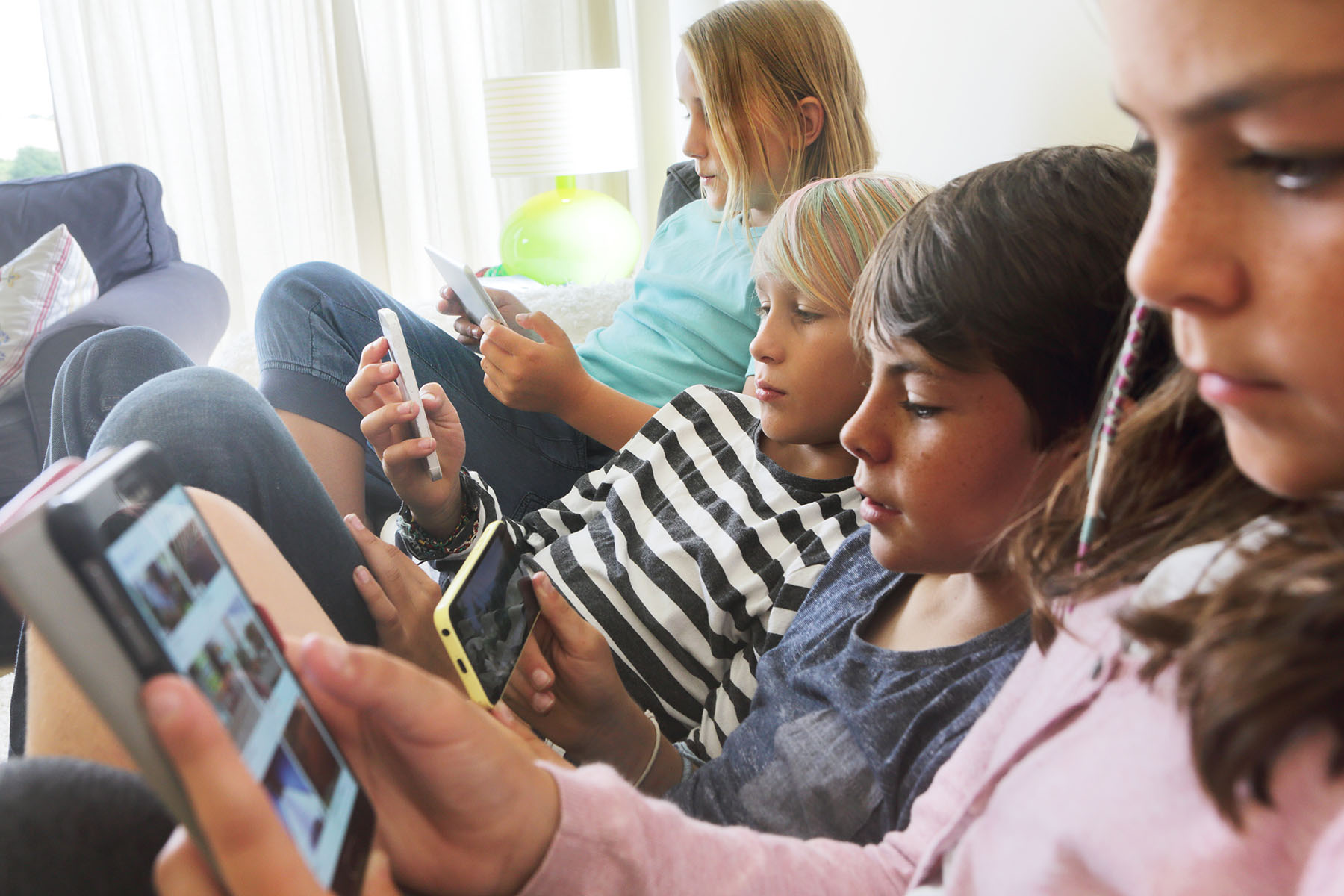How is Social Media Affecting Your Kids?

American teenagers have grown up with social media in their pockets. They’ve never known a world without posts, likes, comments and shares.
In theory, social media can be a fun, drug-free space for kids to make new friends in other parts of the world, learn new things, connect with peers facing the same challenges and share their talents. Social media gives young people a public forum to express themselves and their perspectives. It can serve as both a helpful tool and an amusing distraction if users limit screen time and are intentional about the types of content they follow.
The problem is adolescents aren’t good at self-regulating.
They habitually scroll through social networks, like Tiktok, Instagram and Twitter — between classes, while showering and even when hanging out with friends. This constant access and exposure to filtered, curated, and staged photos and videos leave many preteens and teenagers feeling unattractive, uncool and alone. While these reactions may seem petty and unfounded, the ramifications are real and dangerous to the well-being of young people.
A new Surgeon General advisory notice says, “There are ample indicators that social media can pose a risk of harm to the mental health and well-being of children and adolescents.”
How is social media harmful to young people?
Excessive adolescent engagement with social media can lead to the following:
- In-person social anxiety (connecting with people offline can seem scary or unsafe)
- Body image dysmorphia and disordered eating (triggered by comparing oneself to filtered, staged, curated and edited photos/videos)
- Online bullying/competitiveness (which contributes to social isolation, low self-esteem, negative self-talk and suicide risk)
- Depression (especially among girls) and increased suicide risk (due, in part, to the lack of physical/environmental stimulation and real-world interactions)
- Lack of quality sleep when social media is a bedtime distraction (which leads to memory problems, fatigue, mood instability, anxiety, depression and mindless eating)
- Low self-esteem as a result of FOMO (“fear of missing out” on the social activities of peers) and envying the seemingly perfect lives of social media influencers
- Self-destructive behaviors like substance abuse, premature sexual activity and skipping school (can be encouraged by all of the mental health issues mentioned above)
- More “virtue signaling,” self-righteousness, reactive “cancel culture,” and myopic thinking, as adolescents’ developing brains get caught in an “echo chamber” (making them less accepting of diverse opinions and lifestyles)
“During the early years of the pandemic, there were also some presentations in young people on social media of unusual, highly dramatic, flamboyant tic-like behaviors,” says Barbara J. Coffey, M.D., M.S., a child and adolescent psychiatrist with the University of Miami Health System, who serves as director of the Tourette Association of America Center of Excellence at UHealth.
“These presentations, diagnosed as ‘functional tic disorders,’ were viewed by many young people who were confined to their homes. The tics became sort of ‘contagious.’ These symptoms were exhibited primarily by adolescent girls with no previous personal or family history of tic disorders.”
How can parents minimize these risks for their kids?
While your child may perceive this as a punishment, it’s best to limit their screen time.
“A recent study shows that the amount of time kids spend on social media correlates with mental health problems and risks,” Dr. Coffey says. “We ask parents to tell their children that they cannot bring their phones to the table for meals or at family gatherings.”
If they can’t put down their phone or leave it in another room without experiencing anxiety, then it’s time to set stricter limits.
Ask questions to find out if your teen is preoccupied with getting validation and approval online.
- Does your child get angry or withdrawn after looking at social media?
- Is someone “trolling” them or posting mean comments on their pictures?
Keep an eye on the accounts and posts your child is following and interacting with.
Ensure that the content is age-appropriate and unlikely to trigger self-criticism.
For instance, if your daughter is following celebrity and influencer accounts that solely promote heavily filtered and edited images of young women, try introducing her to more body-positive content. Many female-led accounts push back against unrealistic beauty standards with humor and creativity, cleverly illustrating how “social media isn’t real life.”
Similarly, other social media accounts aim to fight toxic masculinity, showcase diversity and marginalized populations, honestly discuss mental health awareness and neurodivergence, and highlight the kindness of strangers around the world.
“It’s important to recognize that there are benefits to teens’ use of social media, which include opportunities to increase connection with other kids with similar interests and backgrounds, learn new things — especially about mental health — and explore new interests,” Dr. Coffey says.
This access has benefited LGBTQ+ youth in remote areas of the country, for instance, as they use social media to find and support each other. There is plenty of inspirational and educational content available.
“Most importantly, parents should be prepared for and initiate open discussions of content,” she says.
Society’s beauty and style standards, sense of humor and gender constructs are constantly shifting.
You may find your child’s social media feed confusing, off-putting or even offensive. Use this as an opportunity to ask your child without judgement what they find appealing about certain types of content and discuss how it makes them feel about themselves. Talking about social media in this way shows your child that you are deeply invested in them as a person, you are curious about their interests and perspectives, and you’re trying to understand their place in the digital age.
Dana Kantrowitz is a contributing writer for UHealth’s news service.

Learn more from Dr. Coffey as she talked to Dean Henri Ford on a recent U Miami Medicine podcast, a production of the University of Miami Miller School of Medicine. (Listening time: 30 minutes.)
Tags: Dr. Barbara Coffey, face to face, kids activities, kids health, mental wellness, social media platforms, social media posts
